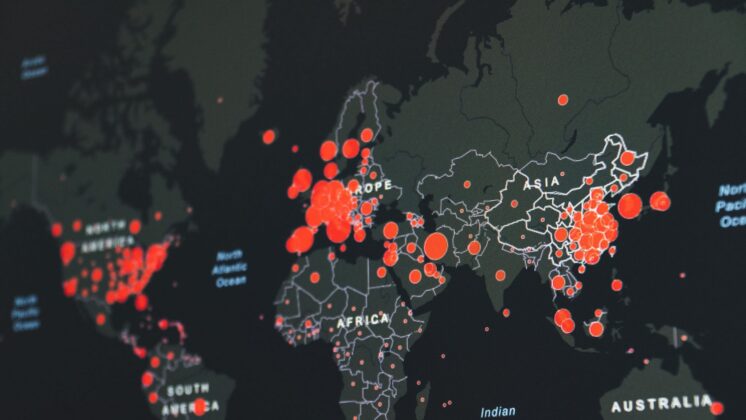Leading High Performing Remote Teams
How can leaders ensure that performance remains high in remote or hybrid-work environments?
Content Marketing
In this course, you’ll learn how compelling blogs, videos, podcasts, and other media can reach customers and drive sales. You’ll also learn steps for creating an effective content marketing plan, and some important ways to measure its impact and success.
Content marketing is a essential digital marketing strategy for companies looking to provide relevant and useful information to support your community and attract new customers.
Get started on your content marketing journey today.
Sustainable Innovation in Times of Disruption: Choices for a Better Society
There are opportunities for progress all around us. The key is to innovate on these opportunities sustainably.
To help identify most effective path forward, you'll need to gain a global perspective to these challenges in an open discussion. How can Japan and the world take action to create a more sustainable, innovative world? Where do you fit in?
It's time to find out.
Social Media & Digital Communications: Impact on Global Public Opinion
Social and digital media have dominated the communications industry for decades. But it's no secret that social media has the power to sway public opinion, and the way in which many companies use these platforms could be seen as manipulative.
What do companies need to be aware of when utilizing social and digital media? How can these mediums be used to better communicate strategically with the world?
Discover what top media and communications experts have to say.
CAGE Distance Framework
Want to expand overseas? The CAGE distance framework can help ensure you're constructing a solid global strategy in four areas: cultural, administrative, economic, and geographic. Learn how to leverage useful differences between countries, identify potential obstacles, and achieve global business success.
Servant Leadership
There's more to leadership than driving a team to profit. In fact, there's a word for looking beyond self-interest to prioritize individual growth: servant leadership. Try this course for a quick breakdown of what that is, how it works, and how it can lead to organizational success.
Strategy: Creating Value Inside Your Company
Have you ever wondered why certain companies are more successful than others? The answer is strategy: internal processes that control costs, allocate resources, and create value. This course from GLOBIS Unlimited can give you the tools you need for that strategic edge.
Strategy: Understanding the External Environment
To plan strategy on any level, you need to understand your company's external environment. In fact, your level of understanding can impact hiring, budgeting, marketing, or nearly any other part of the business world. Want to learn how to do all that? This course from GLOBIS Unlimited is the perfect first step!
Using Japanese Values to Thrive in Global Business
Japanese companies have unique cultural, communication, and operational challenges. But they also have values that have led to remarkable longevity. Check out this seminar to hear how these values help earn trust from overseas head offices and develop employees.
Marketing: Reaching Your Target
Every company works hard to get its products into the hands of customers. Are you doing everything you can to compete? In this course, you’ll find a winning formula to turn a product idea into real sales. Follow along through the fundamentals of the marketing mix and see how companies successfully bring products to market.
Basic Accounting: Financial Analysis
Want to compare your performance vs. a competitor? Or evaluate a potential vendor? Then you'll need to conduct a financial analysis. This course will teach you how to use three financial statements and evaluate financial performance in terms of profitability, efficiency, soundness, growth, and overall strength.
Career Anchors
What drives you to be good at your job?
Career anchors are based on your values, desires, motivations, and abilities. They are the immovable parts of your professional self-image that guide you throughout your career journey.
Try this short GLOBIS Unlimited course to identify which of the eight career anchors is yours!
Leadership with Passion through Kokorozashi
The key ingredient to success? Passion.
Finding your kokorozashi will unify your passions and skills to create positive change in society. This GLOBIS Unlimited course will help you develop the values and lifelong goals you need to become a strong, passion-driven leader.
As lockdowns ease around the world, governments find themselves walking a tightrope. Opening up too early could risk yet more deaths, but waiting too long could send ailing economies further into uncharted territory. Citizens, eager to know where their next paycheck will come from, are nervously looking across borders to see how their own governments’ responses shape up. Are country A’s leaders doing enough, or is the grass greener across the border in country B?
The pressure is on.
Governments have responded in many ways, including monetary policies (such as issuing bonds to raise much-needed capital) and measures to ensure the banks keep lending.
But what about the fiscal response? What are governments doing for people like you and me?

Southeast Asia: Dividing Up Cash Payouts
The daily reality is that cash is still king. Without it, parents cannot buy food for their children or pay their rent or utilities. They welcome a boost to their bank account.
Many governments have opted to give their citizens cash. But how do they divide it among the citizens? Should everyone get it? Or only those most in need?
In the Philippines, where the economy shrank for the first time in 21 years in the first quarter of 2020, 200 billion pesos (US$4 billion) were reallocated to support 18 million impoverished households, coming to two monthly payments of 5,000–8,000 pesos (US$100–160).
But many middle-class Filipinos say that they need help, too.
In other Southeast Asian countries, informal workers—such as day laborers on construction sites or market traders—make up a massive proportion of the workforce. According to ILO data, in Cambodia, more than 80% of non-agricultural workers are informal. The percentages are similar for Myanmar, Bangladesh, Nepal, India, Indonesia, and Laos. Governments in the region have been working hard to support these workers. Nepal and India have given cash handouts. Vietnam has expanded its social assistance programs. And Bangladesh has increased benefit amounts.
Africa: Struggling with Informal Work
Perhaps unsurprisingly, Africa is facing more than its fair share of low-income challenges.
To compensate, Kenya has cut income tax rates. Ghana is offering its citizens free water. South Africa has increased payments to those already claiming welfare. But movement restrictions and dwindling working hours have taken a massive toll on the 41% of Africans working in the informal economyーworkers who are paid daily and live hand-to-mouth below the $2-a-day poverty line.
Government measures don’t reach these people easily, if at all.

Japan: Finding the Fairest Middle Ground
Japan has made several U-turns in its plans.
The country first decided to distribute ¥300,000 (US$2,800) to every household, but opposition parties and regular citizens cried foul—a household of five would receive the same as a household of one. In the end, the government opted for ¥100,000 per person, regardless of income.
And citizens can choose not to receive the payment if they wish.
With finances stretched and no clear end in sight, might this be the time to talk about the divisive idea of universal basic income—not only in Japan, but everywhere?
Europe: Calling a Time-out for Debt
When money stops coming in, we must find ways to stop it going out, too.
Several governments are supporting people by delaying or waiving tax payments. Others are requiring creditors to extend loan repayments. France, Italy, the UK, and several other countries have offered payment breaks on homes or cars. Italy, which after Wuhan became the epicenter for the disease, is waiving mortgage repayments for up to 18 months. This gives breathing room for many families.
The UK and US: Encouraging Furlough Over Lay-offs
Income support and debt relief are good short-term solutions, but we also need a mid- or long-term fix.
The word furlough—a temporary unpaid leave from work for a set period of time—was unknown to most British people before this year. But since the UK agreed to pay up to 80% of furloughed workers’ salaries until October, it is a word that everyone now sadly knows. Wired reported that two-thirds of British businesses have used the scheme, and one company in three has put at least 75% of its employees on furlough, rather than fire them.
The US, meanwhile, is faced with 40 million unemployment claims, dwarfing any previous economic downturn. One response has been the Paycheck Protection Program, described by the US Small Business Administration as “a loan designed to provide a direct incentive for small businesses to keep their workers on the payroll.”

How Sustainable Are These Measures?
There’s a trade-off with every decision we make. Governments are adding new measures and changing course every day. But any support they provide is ultimately funded through taxation or monetary policies, and the longer the crisis goes on, the less money governments will have to help those who need it.
According to data compiled in April by Ceyhun Elgin, an economics professor at Columbia University, when ranked on fiscal government spending (that is, excluding monetary policies) as a percentage of GDP, Japan’s 20% is second only to Malta. While aggressive financial support may make its citizens happy now, Japan was already suffering debt over twice its GDP before this crisis. In short, the country is putting itself in a risky position.
On the other hand, countries with a lighter touch risk losing the support of citizens. The Turkish government met with media criticism when it announced a package worth $2.3 billion (0.35% of GDP) in March. On May 20, it raised the amount to 5%.
Sovereign credit ratings agencies are already downgrading outlooks around the world. S&P downgraded Italy to BBB in April—not much better than a junk bond.
So, what is the best government response? As citizens wonder what the near future will bring, it’s still hard to say where the grass is greenest. We are all learning, and no one knows the best answer.



